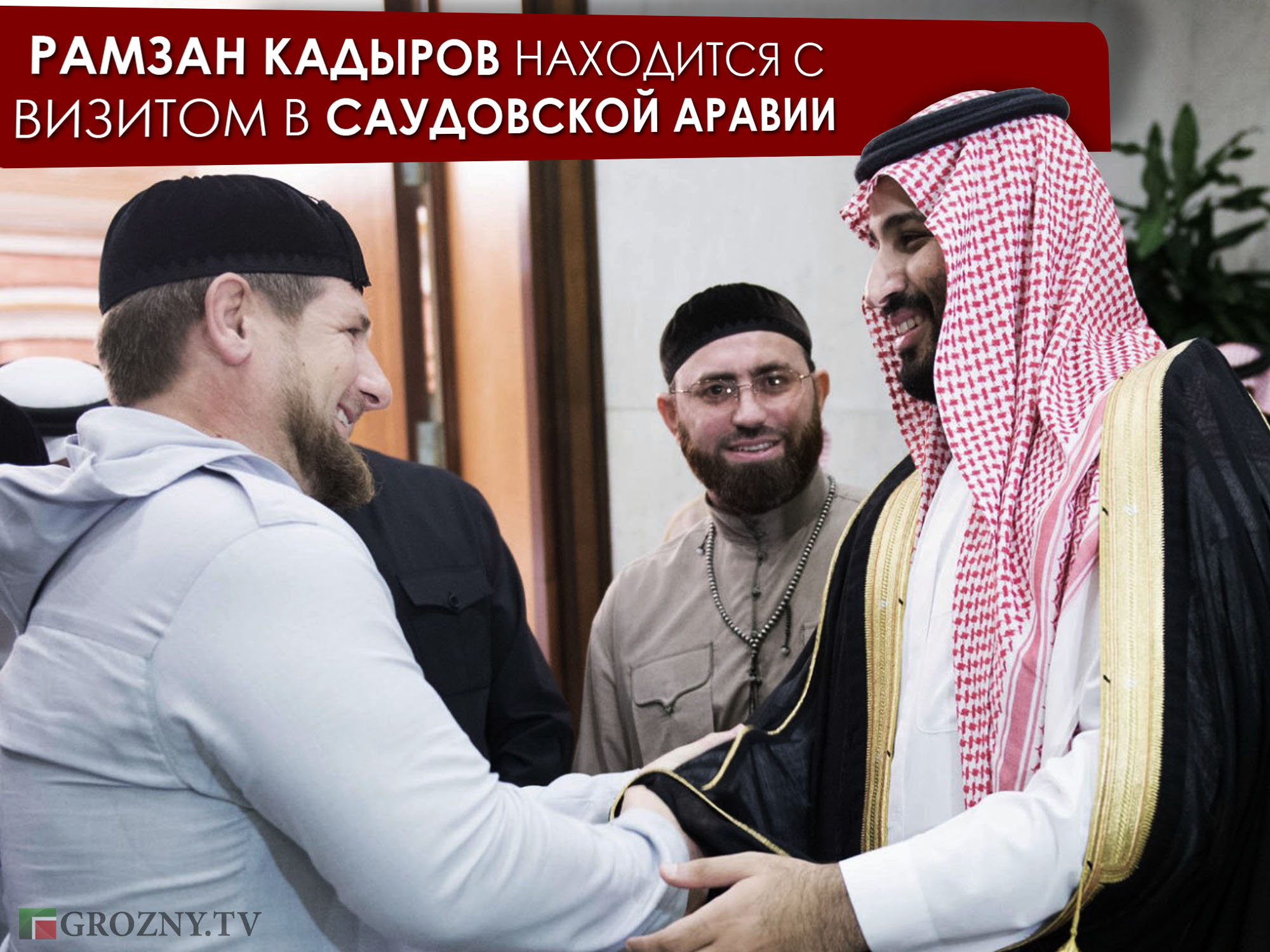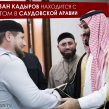
Moscow Uses Kadyrov in Kremlin Push for Rapprochement with Saudi Arabia
Publication: Eurasia Daily Monitor Volume: 12 Issue: 139
By:

Chechnya, formally a Russian province, has found a place for itself in relations between Moscow and Riyadh. Indeed, in general, subnational units of the Russian Federation, in particular the Muslim regions, have become much more active in the Middle East. Chechnya’s governor, Ramzan Kadyrov, has been especially dynamic in this regard: over the past year, he has met the crown prince of the United Arab Emirates, the royal family of Saudi Arabia, the emir of Qatar and the king of Jordan among others.
Ramzan Kadyrov’s last visit to Saudi Arabia was considered private, but high politics were still involved. The Saudi government made an exception for Kadyrov’s family and his entourage, opening the Kaaba, the most sacred site in Islam, for them. Kadyrov communicated the news via his Instagram account, saying that thanks to “the deputy Crown Prince, Minister of Defense, Mohammed bin Salman, mother and I, Medni Musaevna, dear sisters Zargan, Zulai, as well as Adam Delimkhanov, Magomed Daudov, Khasan Khakimov, Ziyad Sabsabi, entered the Kaaba. 20 people in all” (Instagram.com, July 20).
Several significant developments occurred during Kadyrov’s trip to Saudi Arabia. First, Adam Delimkhanov and Magomed Daudov apparently remain the two closest associates of the Chechen leader. Earlier rumors that Daudov’s appointment as the speaker of the Chechen parliament marked a loss in status were apparently incorrect. Secondly, one of the most active politicians in Saudi Arabia, Defense Minister Mohammed bin Salman, hosted Kadyrov and his group. The visit could have been considered a diplomatic overture had it been only a private visit. However, Kadyrov had meetings not only with Crown Prince Mohammed bin Salman, but also with the head of the king’s administration, the foreign affairs minister and the culture and information minister, as well as the head of the kingdom’s security department (Grozny.tv, July 21). This suggests Kadyrov was received at a high level in the hopes of obtaining something through him that was left outside the press coverage.
According to Kadyrov, Prince Mohammed bin Salman “praised the Chechen Republic’s experience in combatting terrorism and extremism and economic development. The Saudi prince announced his decision to send a series of three delegations to Chechnya. In September, the Foreign Minister will come to Chechnya to review the situation and to explore possible areas of cooperation. Another delegation headed by the Minister of Religious Affairs and Endowments will visit the republic to learn about Chechnya’s experience in countering the ideology of terrorism and extremism. […] A delegation from Saudi Arabia’s investment fund will examine investment projects in the republic. Independently of the investment fund, the Saudi government will consider extending a helping hand to the Chechen Republic in various spheres…” Kadyrov said in his speech that relations between Russia and Saudi Arabia will develop successfully and that the friendship between Chechnya and Saudi Arabia, in particular, will receive a new impetus (Chechnyatoday.com, July 21). It is unclear why the Saudi foreign minister would fly to Grozny, given that Chechnya is only one of Russia’s many regions. Normally, Moscow would oppose such a visit, but is apparently not doing so at this time.
According to Vladimir Isaev, a professor at Moscow State University’s Institute of Asian and African Studies, Prince Mohammed ben Salman is one of the key figures in the Saudi government (Onkavkaz.com, June 16). The Saudi prince was one of the few high-profile foreign dignitaries who attended the St. Petersburg economic forum this year against the backdrop of continuing Western sanctions against Russia over Ukraine. The Russian Federation is apparently using Ramzan Kadyrov to establish closer relations with the young prince. As the United States refused to support Saudi Arabia’s counterproductive policies toward Iran and Shi’ites in general, Riyadh started looking toward Moscow, where it will find full understanding and may even be prepared to scale down its interests in Syria.
Kadyrov and Mohammed ben Salman have much in common: both are young politicians, who want to achieve more than they have thus far and, above all, face a common threat in the form of the so-called Islamic State (IS). Saudi authorities recently arrested 431 people with alleged ties to the Islamic State (Rg.ru, July 19). Given that the IS “caliph,” Abu Bakr al-Baghdadi, has many Chechen supporters, the Chechen government is prepared to cooperate with anyone to prevent the group’s emergence in the North Caucasus. Frequent news reports about prison sentences for Chechens who had ties to the Islamic State (Rosbalt.ru, June 16), arrests in Turkey (Kavkazsky Uzel, July 22), and fighters returning from Syria to Chechnya (Kmv.gorodskoitelegraf.ru, May 28) forced Russia to realize that the threat of the Islamic State is real, not hypothetical.
Moreover, Russian foreign ministry officials understand that combatting terrorism could become the foundation for striking an alliance (even if a temporary one) with Saudi Arabia and the countries of the Persian Gulf. If Ramzan Kadyrov manages to convince the Saudi king to visit Grozny, it will be an immense diplomatic achievement by any Russian regional politician. Thus, Moscow is seeking a rapprochement with Riyadh using Ramzan Kadyrov as a representative of the Chechen people. Chechens are known for having fought two bloody wars with Russia and are highly regarded in the global Muslim community. Moscow sees an opportunity to use this widespread respect for Chechens among other Muslims and Russia and is using Kadyrov as a vehicle for forwarding its interests among the influential leaders of the Arab world.




